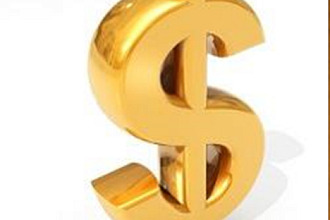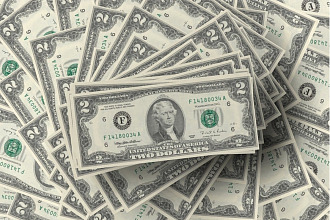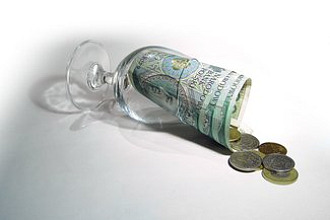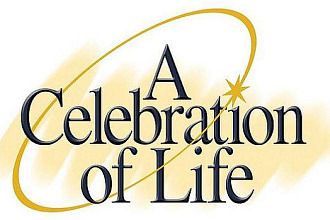Life has a way of occasionally throwing you and your family a curve and you suddenly discover
you and your loved ones are strapped for cash. During this shaky economy, if you are
apprehensive about surviving financially and need money in a hurry, here are a few possible
ways to get cash fast, as well as a few concerns.
Low Financial Cost – High Relational Cost:
Borrow from your Family
"Good old mom or dad" may bethe first place you go when you are short of cash. You reason your
parents are softies and will bail you out of your current cash predicament. However, this quickfix
comes with an assortment of emotional potholes. Parents may feel obligated to help, even when
they are just making ends meet themselves. Other siblings can become jealous, upset and feel
slighted when mom and dad always bail out one particular brother or sister who can't seem to
manage their finances. Recently, a friend of mine told me about his neighbor whose son needed
$100,000 fast to save his business. So his parents borrowed from the equity in their home. Tragically, the business still failed, forcing his seventy‐year‐old parents to sell their home as they could not repay the amount they had borrowed.
Borrow from your Employer
Requesting an advance from your employer can be suitable, if the amount is inconsequential, the boss is approachable and borrowing is common place within your organization or small business. If
you make this a habit, however, it might be harmful to your advancement within the organization, as this may be viewed as a character flaw.
Borrow from the Congregation
The guiding principle of every congregation should be that when a member is in need they will give them assistance. Congregations can help families with goods or by paying their bills directly to the merchant, rather than giving an outright cash gift. The congregation could also facilitate the family receiving aid from other local, non‐profit organizations or appropriate government agencies. A few members assume that when they are in financial straits, the local congregation family should be a source to solve their money problems. As a minister, I have seen dire consequences transpire when congregations decide to lend money to their fellow members. If the member can no longer repay the loan in a timely manner, they may cease coming. It should be the policy of every congregation that they are not a bank or a lending institution.
Borrow from Fellow Congregation Members
Perhaps the worst scenario is when a member borrows money from another member. In one congregation the lender became so sick with the worry about the possibly of losing
the money, they stopped attending. The situation became so bad the board asked for the resignation of both the borrower and the lender. The minister ended the crisis with a sermon on the consequences and dangers of borrowing, debt and bankruptcy. Fortunately, many years later the money was repaid and both parties returned to congregation fellowship.
High Financial Cost — Low Relational Cost:
Borrow from your 401(k)
Borrowing from your retirement account is in essence borrowing from yourself. What you really lose is future retirement earnings for present cash. Depending on what your current employer allows, you can have access up to 50% of your current vested balance or $50,000.00, whichever is the lesser amount. Usually you are charged fees up to one or two points above the prime lending interest rate and you are required to return the loan in full within a five‐year period. If you
borrow $20,000 at 7% interest you will have a potential loss of $17,000 in retirement earnings. 1 The only upside to this option is that it is less stressful to take the money out of your retirement fund than to be strapped with enormous monthly pay‐backs over the next decade. If you find yourself needing to borrow from your retirement, it is essential to be more aggressive in your future retirement savings.
Borrow from a "Payday" Loan Store
Check‐cashing stores will make a payday loan to you if you are employed full‐time, earning a
minimum of a $1,000 per month. The maximum you can usually borrow is $500 to $1,500.00 but for no longer than thirty days. The fees are usually between $25‐45 regardless of the amount borrowed. Nevertheless, hang on to your wallet!! The $45 charge may seem reasonable but it is
equivalent to $1,200.00 in annual interest. If you were to borrow $300.00, that would be an annual
percentage rate (APR) of 390%.2
Other Suggestions
Credit card check advances typically range from 20 to 30% and often require upfront fees of up to 4%.
Pawnshops are certainly in the business of short‐term loans by using valuable items such as
laptops, musical instruments and other personal items as collateral, for up to 50% of the item's retail value. Often a service fee is charged, so if you do not repay the loan in a specific time, your
collateral can be sold.
Life insurance policies, particularly whole or universal life can be borrowed from at an annual rate of approximately 5‐7%.
Reverse Mortgages are the newest way to get cash quick. However, although the bank pays you
now, it comes with copious fees and regulations. It can also affect your eligibility for Medicaid and
Supplemental Security Income. Best advice, "Don't think about this until you are 85."
Final Word of Caution
Before you decide to take any of the above suggestions, consult with a friend or an established
financial planner. Remember these suggestions might ease your current cash crunch, but may also
come with significant, and often costly, downsides.
STOP LOOKING UNDER THE SOFA PILLOWS
You often see ads on television showing people searching for loose change to buy their favorite snack food or beverage. Or you observe retired gentlemen with their metal detectors on the beach, hoping to discover a lost ring or a few quarters, dimes, etc. I read recently about a man whose hobby is to search for money in parking lots, gutters and other public places. His annual take is often over $100. For six months, a number of years back, I faithfully walked two to three miles every day, which was great for the physical benefits and which also netted me over $50 worth of cans and coins that I gathered from my neighborhood. But, I believe most people would do much better in attempting to get cold, hard cash when the tough times hit by following this financial suggestion:
HAVE AN EMERGENCY ACCOUNT
The need for quick cash often comes at unexpected times and in unanticipated situations, so it is useful for us to begin, today, to scrape together a few dollars from each paycheck, let's says in the amount of $25, until you have $1,000 in a CD or a savings account for those unforeseen circumstances. Murphy's Law* reminds us that out of the blue, your child might be rushed to the ER, or your car's engine will decide to die, or your
refrigerator will quit—sometimes all within a 24 hour period. Nevertheless, if you begin to build such a fund for those unforeseen, motor vehicle repairs, house maintenance upkeep, and medical dilemmas, you will not feel like you are about to be sucked down that unavoidable financial drainpipe. Planning for those three M's will be a great deal cheaper than paying high interest on your plastic credit cards, and better yet, your overall health will improve, knowing you have funds available.
* Anything that can go wrong will go wrong.
References:
1. Cathie Gandel, How to get Cold Cash in Tough Times, Readers Digest,
December, 2008, p. 123.
2. Make the Most of Your Money, Bottom Line Publications, 2008, p. 25.


























